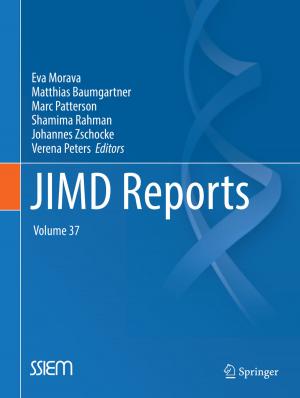Beta-Blockers in the Elderly
Nonfiction, Health & Well Being, Medical, Specialties, Internal Medicine, Cardiology| Author: | B. Ablad, C.-J. Estler, J.W. Franz, M. Gastpar, L. Hansson, J. Herlitz, A. Hjalmarson, G.K. Kriegelstein, F.W. Lohmann, R. Rost, B. Rürup, J. Schulz, F. Sörgel, A. Vedin, F. Waagsten, B.O. Williams | ISBN: | 9783642686740 |
| Publisher: | Springer Berlin Heidelberg | Publication: | December 6, 2012 |
| Imprint: | Springer | Language: | English |
| Author: | B. Ablad, C.-J. Estler, J.W. Franz, M. Gastpar, L. Hansson, J. Herlitz, A. Hjalmarson, G.K. Kriegelstein, F.W. Lohmann, R. Rost, B. Rürup, J. Schulz, F. Sörgel, A. Vedin, F. Waagsten, B.O. Williams |
| ISBN: | 9783642686740 |
| Publisher: | Springer Berlin Heidelberg |
| Publication: | December 6, 2012 |
| Imprint: | Springer |
| Language: | English |
In conjunction with the Twelfth International Congress of Gerontology, the Carl-Korth Institute for Cardiovascular Research organized an international symposium on "Beta Blockers in the Elderly." It was the intention of the Scientific Committee that during this symposium we would discuss the specific problems and therapeutic implications arising when elderly people have to be treated with beta-blocking agents. Special emphasis was placed on the side effects and the age dependent features of beta-blocker therapy. Beta-blockers have become established in the treatment of both cardiovascular diseases and neuropsychiatric disorders. Their effectiveness in patients suffering from coronary heart disease, hypertension, and hyperkinetic cardiac syndromes has long been proven. The development of new, selectively active beta-blockers has substantially reduced the number of possible side effects, thus enhancing therapeutic safety. Because side effects cannot be eliminated, however, beta blockers have been introduced only hesitantly into treatment of the elderly. This book is the first wide-ranging survey of the use of beta blockers in elderly patients. The articles contained herei- written by pharmacologists, cardiologists, sports physicians, neurologists, psychiatrists, and ophthalmologists - show that advanced age alone does not contraindicate the use of beta-blockers and sympatholytic substances. Also provided are guidelines for examination and determination of in dications in the elderly. Both the symposium and the publication of this volume have been kindly supported by Astra Chemicals, West Germany.
In conjunction with the Twelfth International Congress of Gerontology, the Carl-Korth Institute for Cardiovascular Research organized an international symposium on "Beta Blockers in the Elderly." It was the intention of the Scientific Committee that during this symposium we would discuss the specific problems and therapeutic implications arising when elderly people have to be treated with beta-blocking agents. Special emphasis was placed on the side effects and the age dependent features of beta-blocker therapy. Beta-blockers have become established in the treatment of both cardiovascular diseases and neuropsychiatric disorders. Their effectiveness in patients suffering from coronary heart disease, hypertension, and hyperkinetic cardiac syndromes has long been proven. The development of new, selectively active beta-blockers has substantially reduced the number of possible side effects, thus enhancing therapeutic safety. Because side effects cannot be eliminated, however, beta blockers have been introduced only hesitantly into treatment of the elderly. This book is the first wide-ranging survey of the use of beta blockers in elderly patients. The articles contained herei- written by pharmacologists, cardiologists, sports physicians, neurologists, psychiatrists, and ophthalmologists - show that advanced age alone does not contraindicate the use of beta-blockers and sympatholytic substances. Also provided are guidelines for examination and determination of in dications in the elderly. Both the symposium and the publication of this volume have been kindly supported by Astra Chemicals, West Germany.















